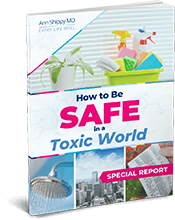Stress And Anxiety: A Functional Medicine Approach
For so many people, holidays and special occasions like graduations or other big life events are synonymous with stress.
You might even be used to feeling anxious about social obligations, time with family, sticking to your diet plan, finances and more.
When we get busy, or overwhelmed we may revert to poor habits. Overeating, drinking and weight gain are also common when we are stressed.
While it might be tempting to reach for that glass of wine to cope with anxiety, Functional Medicine has healthier tools that may help support the body over the long term.
If you are struggling with anxiety, now this is a good time to uncover your personal anxiety root causes and develop some new habits and strategies to support you moving forward.
In today’s article, we will cover:
- What is anxiety?
- The conventional vs. Functional Medicine approach to anxiety
- Root causes to anxiety
- Action steps for reducing anxiety and supporting a healthy response to stress
What Is Anxiety?
Anxiety is fear, apprehension or uneasiness when faced with a threatening or stressful situation, either real or perceived.
Anxiety might feel like:
- Chest tightness
- Heart palpitations
- Elevated blood pressure (hypertension)
- Insomnia or changes in sleep patterns
- Poor concentration
- Changes in bowel habits
- Avoidance of certain situations
- Restlessness
Anxiety, fear, worry and stress are a normal response when something negative is impending or anticipated. However, when the anxiety doesn’t resolve and is ongoing, it may affect your health or be a symptom that something underlying is going on.
Anxiety is common, affecting one in ten people and that number is likely higher in 2023.
The Functional Medicine Approach To Anxiety
Before talking about the Functional Medicine approach, let’s look at the conventional approach to anxiety. In conventional medicine, anxiety – and depression as well – are viewed as a neurotransmitter imbalance.
The main tool used is medication to address the symptoms of anxiety. SSRIs (selective serotonin reuptake inhibitors) are used when a serotonin deficiency is assumed and work to increase this neurotransmitter.
Benzodiazepines, such as Xanax, are used to increase GABA, a neurotransmitter that promotes feeling calm.
These medications have their place, but it’s important to remember that they address symptoms and not the root cause of the anxiety. Often they aren’t very effective and aren’t meant to be a long-term solution.
They can also cause significant side effects, including weight gain, sexual dysfunction, and headaches.
In Functional Medicine, we view all systems in the body as interconnected. For example, there is a clear link between gut health and brain health, called the gut-brain axis.
This connection is interesting because we know that stress affects the gut microbiome, the community of microorganisms living inside the digestive system.
Changes in the microbiome are associated with many illnesses and symptoms including anxiety, obesity, Alzheimer’s disease, autism and schizophrenia.
This understanding of the connections in the body allows the Functional Medicine clinician, and patient, to be health detectives and uncover the root causes of symptoms including anxiety.
Anxiety Root Causes
In Functional Medicine, we view anxiety as the symptom and want to understand what is causing it.
Of course, an immediate stress may certainly be the culprit, but as anxiety continues over time and interferes with life, it’s time to dive a little deeper.
Here are some possible root causes of anxiety:
1. Stress. The HPA axis (hypothalamus-pituitary-adrenal) is the system in the body where the brain perceives stress and initiates the stress hormones from the adrenal glands. HPA axis dysfunction occurs when this system is out of balance, typically from chronic stress.
Work, school, finances, relationships and other mental or emotional stressors certainly play a role. We also need to remember poor diet, hormone imbalances, blood sugar dysregulation, lack of sleep, and poor hydration all place stress on the body. In addition, toxins are often hidden sources of stress.
2. Toxins. Mold exposure, EMFs, smoke from forest fires, pesticides and other environmental toxin exposures may be impacting the system and causing anxiety as one of the symptoms.
3. Gut Infections. Gut infections are another, often hidden, cause of stress. Stealth bacterial infections like H. Pylori, candida, parasites and other imbalances in the microbiome place stress on the immune system and HPA axis via the gut-brain axis. In addition, they increase inflammation in the body and may cause issues with digestion and absorption that lead to nutrient deficiencies. Inflammation in the gut also means inflammation in the brain. And in another interesting gut-brain connection, most of the body’s serotonin production (over 90 percent!) actually happens in the gut instead of the brain as once thought. This means gut infections and microbiome imbalances may be the root cause of imbalances with neurotransmitters, affecting the mood.
4. Nutrient deficiencies. Nutrient deficiencies occur when we aren’t eating enough of a particular nutrient, aren’t absorbing enough as we discussed with gut infections or if our body has higher needs for a certain nutrient because of personal genetics or epigenetics. In addition, most pharmaceutical medications deplete nutrients so we may have higher needs. Magnesium, B vitamins and other nutrients are important for brain health and neurotransmitter production and metabolism. When we don’t have optimal levels… deficiency symptoms occur, with anxiety being one of them.
5. A recent study found that low estrogen levels in women are linked to heightened levels of fear and anxiety. This might explain why fear and anxiety are a hallmark of the postpartum time when estrogen levels are low. And, perhaps why anxiety affects twice as many women as men.
6. Mitochondrial depletion (also called NAD Energy Deficiency, or NED) also results in many of the physical symptoms of aging and degenerative processes, including anxiety.
Anxiety Action Steps
The first step in exploring anxiety is to uncover the root cause or causes and begin addressing those.
Sometimes it’s simple and other times it can be more complex, requiring comprehensive testing such as a stool test, hormone testing, nutrient testing and toxin panels. (DIY testing is available here.)
Addressing root causes may require digestive support and a personalized 5R gut healing protocol, detoxification support, adopting a nutrient-dense Paleo diet and adjusting your mindset and relationship to emotional stress.
While you work to address the root causes, there are some Functional Medicine lifestyle tools that will help support relief from the symptoms of stress and anxiety.
Here are some worth exploring:
- Meditation. Sometimes this is the hardest habit to put in place, but it is one with the greatest rewards. It not only calms the nervous system, but helps to rewire it for a more balanced stress response. If you’re just getting started with meditation, Muse and Heartmath are devices that support learning to meditate and making it a lasting habit. I also like Joe Dispenza, Ziva Meditation, and Health Journeys with Bella Ruth Napersak.
- Exercise. Exercising your body is a great way to move stress and anxious energy through the body and often provides relief. Exercise boosts endorphins and is one of the best lifestyle tools to support mental health.
- Acupuncture and bodywork. Acupuncture has been shown as supportive for reducing anxiety. Massage and other energy or bodywork also promotes stress relief and the parasympathetic, or relaxed, nervous system response.
- Sleep. Although anxiety may make it hard to sleep, prioritizing enough quality sleep will help to reduce anxiety by supporting the circadian rhythm. Try a detox bath before bed and add a few drops of lavender essential oil. Nighttime supplements may be helpful too.
- Neurofeedback. Neurofeedback is a form of biofeedback that uses real-time monitoring of brain activity to help individuals learn to regulate their own brain function. Neurofeedback has been shown to be effective in treating anxiety by helping individuals to learn how to regulate their own brainwave patterns, which in turn can help them to manage their anxiety symptoms. Another way that neurofeedback can help with anxiety is by increasing the individual’s awareness of their own bodily sensations and emotional states. By providing real-time feedback on brain activity, individuals can learn to recognize when they are experiencing anxiety and use techniques they learn during their sessions to regulate their brain function and reduce anxiety.
Supplement smart. Certain nutrients and herbs are very calming and supportive for reducing anxiety.
- Glycine – This amino acid calming and relaxing, supports detoxification and improves brain health. Try glycine powder before bed or at the time of day when anxiety is highest. (Click here to watch my video, the Benefits of Glycine).
- Magnesium Glycinate – Magnesium is a mineral that supports muscle relaxation and sleep. In this version it’s combined with glycine, making it a great option for before bed.
- B Complex – B complex provides the B vitamins that your body needs to support neurotransmitter production, metabolism and energy. This is best taken early in the day with food.
- Stress Manager – This formula is a combination of ashwagandha, l-theanine and specific herbs to lower cortisol. This is another calming formula that may be helpful in the evening or before bed to calm the system and promote HPA axis balance.
- NAD+ supplement and NAD IVs. NAD+ IV therapy was originally used as a treatment for drug and alcohol addictions in recovery settings. During these treatments, NAD+ was found to be helpful with depressive, anxiety and other mood disorders.
- Ashwaganda For thousands of years, ashwaganda has been used to help support ailments ranging from musculoskeletal conditions to sleep issues. It is widely used today for restoring physical and mental energy while balancing the effects of daily stress.
In addition to all of the things that you may try to calm your anxiety, consider anxiety triggers, such as caffeine, alcohol or too much screen time, and set limits around those.
While anxiety and stress are responses that certainly make sense given everything that is going on in the world and our individual lives at the moment, you don’t need to suffer with anxiety day in and day out.
There are many natural approaches, some simple and some that may take more time to fully shift, that will address both the root causes and the symptoms of anxiety.
References
- https://pubmed.ncbi.nlm.nih.gov/27406490/
- https://marketplace.collegepulse.com/img/student_wellness_collegepulse_final.pdf
- https://journals.physiology.org/doi/full/10.1152/physrev.00018.2018?rfr_dat=cr_pub++0pubmed&url_ver=Z39.88-2003&rfr_id=ori%3Arid%3Acrossref.org
- https://onlinelibrary.wiley.com/doi/full/10.1111/j.1755-5949.2011.00254.x













